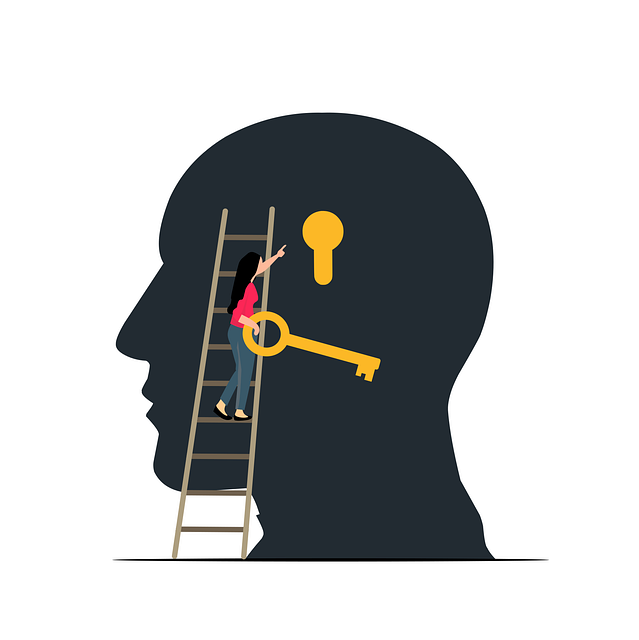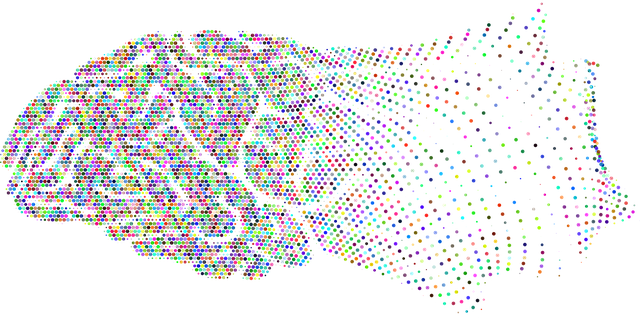Colorado Springs Anxiety Therapy offers a holistic approach to mental health, emphasizing social skills training as a key component for healing. Through CBT and other techniques, individuals learn emotional intelligence, communication strategies, and crisis management to navigate social situations with confidence. Mindfulness workshops and group therapy sessions teach coping mechanisms for anxiety-inducing interactions, while Risk Management Planning provides practical tools for handling triggering events. This comprehensive program aims to empower clients to build healthy relationships, lead fulfilling lives, and integrate into their community.
Social skills training is a powerful tool for managing mental health conditions. This comprehensive guide explores the intricate link between social interaction and well-being, highlighting how Colorado Springs Anxiety Therapy leverages these skills to foster improvement. We delve into practical strategies tailored for individuals navigating mental health challenges, offering valuable insights for enhanced social connections and overall mental resilience. Discover effective approaches to cultivate and strengthen social skills, ultimately enhancing quality of life.
- Understanding the Connection Between Social Skills and Mental Health
- The Role of Colorado Springs Anxiety Therapy in Improving Social Skills
- Practical Strategies for Developing and Enhancing Social Skills in Individuals with Mental Health Conditions
Understanding the Connection Between Social Skills and Mental Health

Social skills are integral to our overall well-being, especially when it comes to mental health. Many mental health conditions, such as anxiety or depression, can isolate individuals from social interactions, leading to a vicious cycle where lack of connection exacerbates symptoms. Colorado Springs Anxiety Therapy often recognizes this interplay and incorporates social skills training as a vital component of treatment.
By fostering emotional intelligence and effective communication strategies, Emotional Healing Processes can be facilitated. This includes learning to manage mood swings, recognize non-verbal cues, and engage in meaningful conversations—all essential aspects for building and maintaining healthy relationships. Mood Management becomes more achievable when individuals develop these skills, allowing them to navigate social situations with greater confidence and reduced anxiety.
The Role of Colorado Springs Anxiety Therapy in Improving Social Skills

Colorado Springs Anxiety Therapy plays a pivotal role in enhancing social skills for individuals grappling with mental health conditions. Through specialized programs tailored to address anxiety and related issues, this therapy offers a supportive environment where patients can safely practice and develop interpersonal interactions. By combining evidence-based techniques from cognitive behavioral therapy (CBT) and other effective approaches, therapists help clients navigate social situations more confidently.
This holistic approach not only improves communication and relationship building but also integrates mental health policy analysis and advocacy into the treatment process. Crisis intervention guidance and resilience building are integral components, equipping individuals with the tools to manage anxiety in diverse settings. The ultimate goal is to empower patients to lead fulfilling lives by fostering meaningful connections and promoting overall well-being.
Practical Strategies for Developing and Enhancing Social Skills in Individuals with Mental Health Conditions

Developing social skills is a significant aspect of recovery and well-being for individuals managing mental health conditions. Practical strategies tailored to each person’s unique needs can make a world of difference in their interactions and overall quality of life, especially in communities like Colorado Springs Anxiety Therapy where support is readily accessible. One effective approach involves teaching mindfulness techniques to foster emotional regulation and reduce social anxiety. By practicing present-moment awareness during social interactions, individuals learn to manage their responses to stressors, enabling them to engage more comfortably in conversations and build connections.
Risk Management Planning for Mental Health Professionals plays a crucial role in supporting these individuals. Workshops focused on stress management can equip people with tools to handle triggering situations socially. These may include techniques such as deep breathing exercises, cognitive reframing, or engaging in calming activities like music or art therapy before or during social events. Additionally, group therapy sessions provide a safe space to practice social skills and receive peer feedback, fostering a sense of belonging and improving one’s ability to navigate social scenarios effectively.
Social skills training is a powerful tool in supporting individuals with mental health conditions. By addressing the connection between social abilities and mental well-being, as highlighted in this article, Colorado Springs Anxiety Therapy offers valuable insights into improving social interactions. The practical strategies provided can empower those facing challenges to develop and enhance their social skills, fostering better connections and overall mental health. Integrating these techniques into therapy sessions, as demonstrated by Colorado Springs Anxiety Therapy, can lead to significant improvements in quality of life for individuals navigating mental health conditions.














